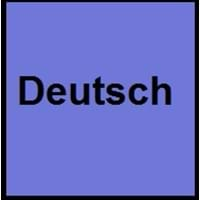German vs Welsh
Countries
Austria, Belgium, Germany, Italy, Liechtenstein, Luxembourg, Switzerland
Wales
National Language
Germany
Wales
Second Language
North Dakota, United States of America
Not spoken in any of the countries
Speaking Continents
Europe
Europe
Minority Language
Czech Republic, Denmark, Former Soviet Union, France, Hungary, Italy, Namibia, Poland, Romania, Slovakia, Slovenia
Argentina, United Kingdom
Regulated By
Council for German Orthography
Welsh Language Commissioner
Interesting Facts
- One of the large group of Indo-Germanic languages is German.
- The second most popular Germanic language spoken today behind English is German language.
- One of the Celtic language still spoken with great numbers of speakers is Welsh language.
- Welsh was evolved from British , which was spoken by ancient Britons.
Similar To
Dutch, Danish, Norwegian, Swedish and English Languages
English Language
Derived From
Albanian Languages
British Language
Alphabets in
German-Alphabets.jpg#200
Welsh-Alphabets.jpg#200
Writing Direction
Left-To-Right, Horizontal
Not Available
How Are You?
Wie geht es dir?
Sut ydych chi?
Good Night
gute Nacht
Nos da
Good Evening
guten Abend
Noswaith dda
Good Afternoon
guten Tag
P'nawn da
Good Morning
guten Morgen
Bore da
Please
bitte
os gwelwch yn dda
Sorry
Verzeihung
Mae'n ddrwg gennym
I Love You
Ich liebe dich
Dw i'n dy garu di
Excuse Me
Entschuldigung
Esgusodwch fi
Dialect 1
Swiss German
Patagonian Welsh
Where They Speak
Switzerland
Argentina
Dialect 2
Swabian German
Y Wyndodeg
Where They Speak
Germany
Gwynedd
How Many People Speak
Not Available
Dialect 3
Texas German
Y Bowyseg
Where They Speak
Texas
Powys
How Many People Speak
Not Available
Speaking Population
Not Available
Second Language Speakers
Not Available
Native Name
Deutsch
Cymraeg / Y Gymraeg
Alternative Names
Deutsch, Tedesco
Cymraeg
French Name
allemand
gallois
German Name
Deutsch
Kymrisch
Pronunciation
[ˈdɔʏtʃ]
[kəmˈrɑːɨɡ]
Ethnicity
Germans
Welsh people
Origin
6th Century AD
9th Century
Language Family
Indo-European Family
Indo-European Family
Early Forms
No early forms
Common Brittonic, Old Welsh, Middle Welsh
Standard Forms
German Standard German, Swiss Standard German and Austrian Standard German
Welsh
Language Position
Not Available
Signed Forms
Signed German
Not Available
Scope
Individual
Individual
ISO 639 6
deus
Not Available
Glottocode
high1287, uppe1397
wels1247
Linguasphere
52-ACB–dl & -dm
50-ABA
Language Type
Living
Historical
Language Linguistic Typology
Subject-Object-Verb, Subject-Verb-Object
Verb-Subject-Object
Language Morphological Typology
Fusional, Synthetic
Fusional
German and Welsh Language History
Comparison of German vs Welsh language history gives us differences between origin of German and Welsh language. History of German language states that this language originated in 6th Century AD whereas history of Welsh language states that this language originated in 9th Century. Family of the language also forms a part of history of that language. More on language families of these languages can be found out on German and Welsh Language History.
German and Welsh Greetings
People around the world use different languages to interact with each other. Even if we cannot communicate fluently in any language, it will always be beneficial to know about some of the common greetings or phrases from that language. This is where German and Welsh greetings helps you to understand basic phrases in German and Welsh language. German word for "Hello" is hallo or Welsh word for "Thank You" is Diolch. Find more of such common German Greetings and Welsh Greetings. These greetings will help you to be more confident when conversing with natives that speak these languages.
German vs Welsh Difficulty
The German vs Welsh difficulty level basically depends on the number of German Alphabets and Welsh Alphabets. Also the number of vowels and consonants in the language plays an important role in deciding the difficulty level of that language. The important points to be considered when we compare German and Welsh are the origin, speaking countries, language family, different greetings, speaking population of these languages. Want to know in German and Welsh, which language is harder to learn? Time required to learn German is 30 weeks while to learn Welsh time required is 30 weeks.





